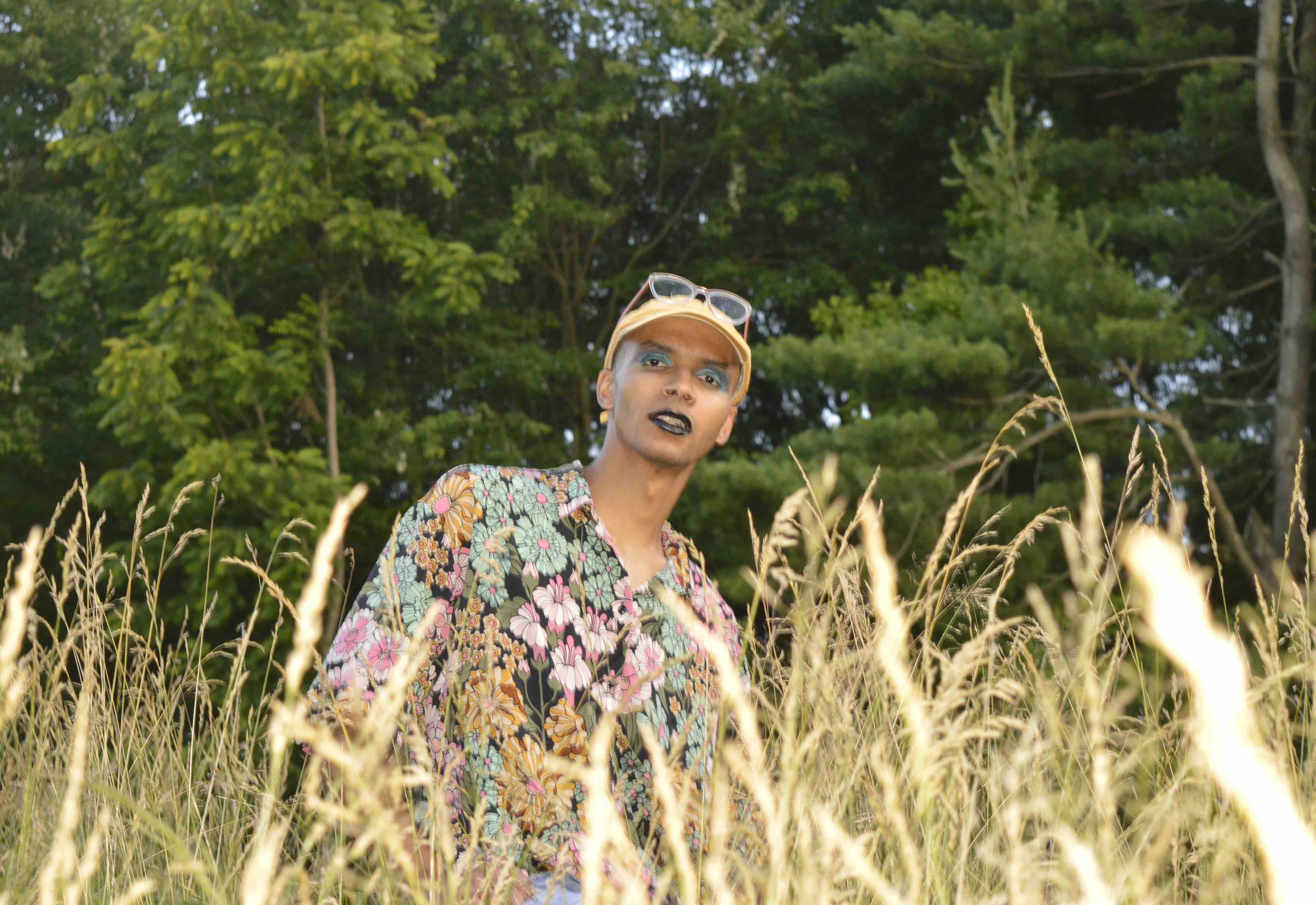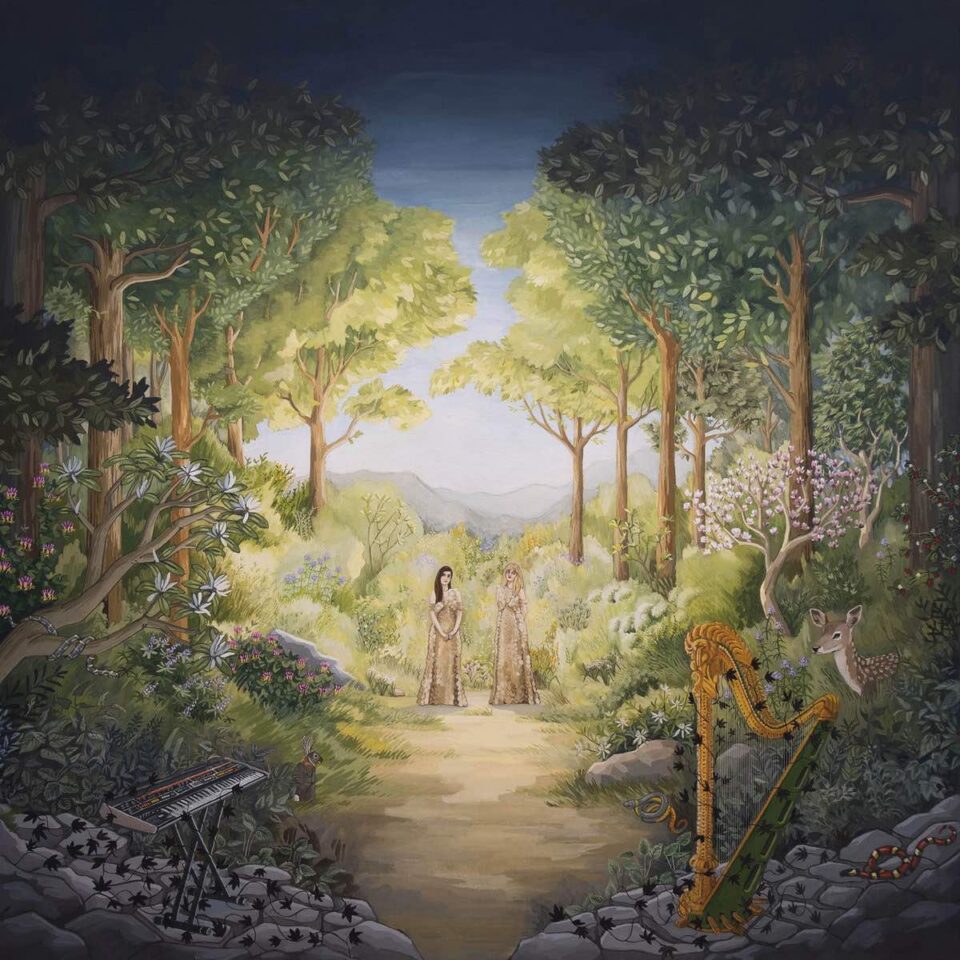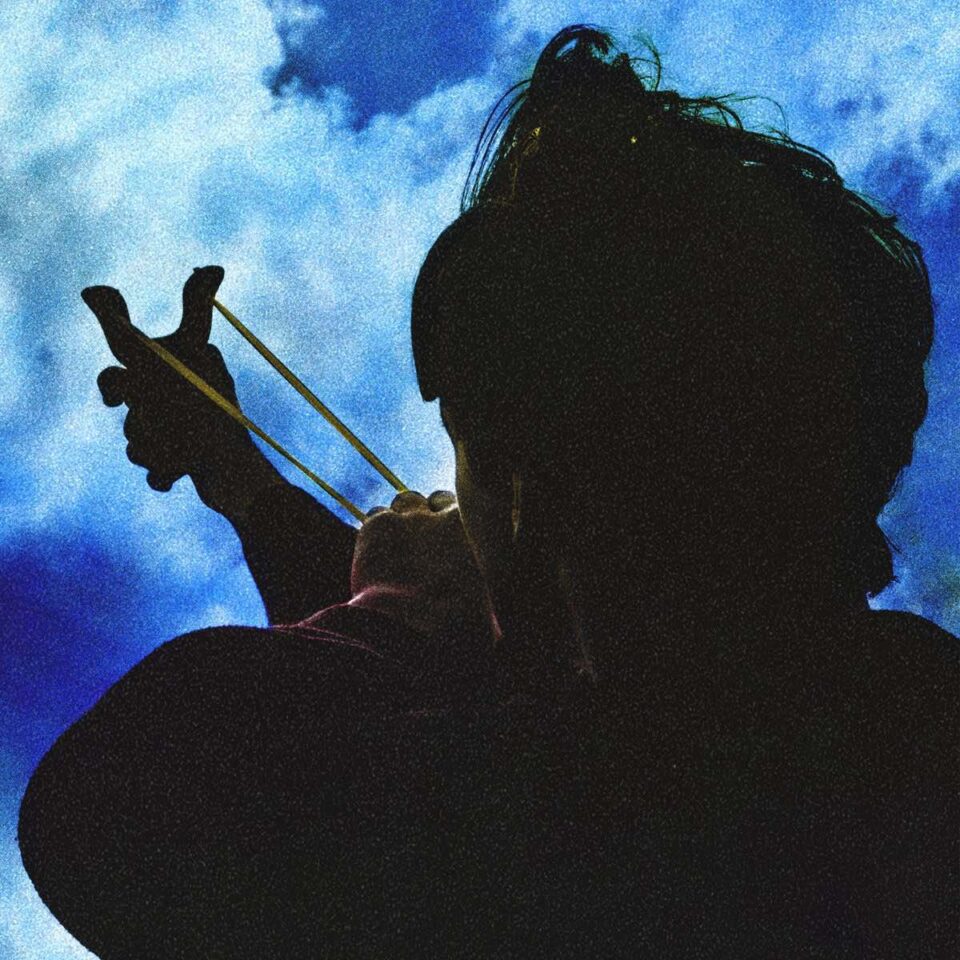There seems to be a running joke on Twitter where every day there’s a new national or global tragedy trending on the app with, like, “Farts” inexplicably listed as a trending topic directly beneath it. I guess that sense of unmediated juxtaposition was ushered in with the advent of TV advertising (why do I crave Applebee’s every time I’m reading up on the conflict in Ukraine?), but it’s become an apt metaphor for just about everything else we experience in our on- and offscreen lives in the aftermath of arguably the most horrifying national leader our country has ever elected also saying extremely funny shit on a daily basis. It’s no wonder the aggressively fractured sounds of hyperpop have become the soundtrack to this era’s youth movement.
While it never quite reaches the extreme poles of that cult genre, the latest LP from Spring Silver is a steady change of disparate channels throughout its 10 tracks. With album artwork depicting band leader K Nkaza in an all-too-familiar limbo of “in bed but unable to log off,” I Could Get Used to This—a title toting a bold sentiment for our times—is clearly the work of an artist who’s inspired by high and low art without explicitly making it known that they’re referencing either. There’s as much nostalgia for the indie rock scene of the mid-’00s embedded in the record as there is for the other rock genres that were waning in popularity at the time like nu metal, which fell victim to the former movement’s quiet elitism.
Meanwhile, vocal contributions from Bartees Strange, Sad13, and Jhariah—not to mention cameos from Cloud Nothings’ Dylan Baldi wilding out on the sax and Mister Goblin’s Sam Goblin risking his vocal cords for the cause—help to settle it firmly within the unique musical context of 2022, where genre rarely feels more important than musical community. With the LP out today, Nkaza takes us track-by-track through I Could Get Used to This to unpack some of the stories that informed the record, ranging from Trump-era encounters to ambiguous references to online sex work. Stream the whole record below, and read on for K's words.
1. “Little Prince”
McMansions, and the housing developments they’re within, never fail to fascinate me. It’s almost as if they were designed to have no culture whatsoever, good or bad. Like, ideally the families would just live in the home design software. (Did any of you have those home design apps on CD-ROM? Those were peak liminal spaces: eerie and soothing.) The riff on this one is pretty undeniable, I think. Based on the melody, the chord choice, and the fact that I’m playing the root notes and the top line simultaneously, it reminds me a little of classical guitar. This is coming from someone with the most cursory of classical guitar knowledge.
2. “Fetch”
This song went through quite an expansive evolution. When I first recorded the galloping guitar riff, I didn’t have a trap beat in mind. For the longest time the whole tune was double time, like at the climax near the end. I’m glad I switched things up so I could get the best of both worlds. I think most of the lyrics on this album are quite theatrical, but these feel especially so: the references to fancy pastries, the high seas, violence. All of it is in service to an allegory for emotional dependency.
3. “I Saw Violence”
During my time at University of Maryland, Baltimore County, Melania Trump was invited to speak at the new sports arena that hosted both school events and private events. UMBC didn't notify the students. They knew we would be pissed off, I imagine. We found out about the event featuring the (at the time) First Lady, which would be hosted on our own campus, from the news, of all places. So I, along with numerous other students, went to protest. Some MAGA dude stormed up to us claiming to want a “civil debate.” Not two minutes later, he bloodied a fellow protester’s nose. UMBC chief of police Paul Dillon claims the event was made up. He says, “We had officers watching the protesters, keeping them safe.” Dillon certainly was right about the police presence. They were everywhere. They couldn’t have missed it. The irony of this whole thing is so glaring, you need shades to reckon with it: the guy demanding a “civil debate” at a protest of all places immediately resorting to physical violence, the people claiming to protect and serve using their powers to cover up violence. The whole thing made me so fuckin’ sick I wrote a song about it.
4. “My Feelings on the Matter”
Throughout my adolescence, I was obsessed with French touch and 2000s electro, like Ed Banger stuff, MSTRKRFT, and whatnot. I wanted to be an EDM producer. This song is my attempt to see that dream to fruition in three and a half minutes or so. The lyrics are about emotional distress. The writing is rather blunt, heh.
5. “Saymour’s Stop”
This song is about someone who was on my route when I delivered for Meals on Wheels. In its initial form, the track had an Elliott Smith vibe. I always admired how Smith put the musical and lyrical composition first in his song production. It’s especially noticeable in 2020, when so many artists place sonic texture above everything else.
6. “O Kristi”
Though I was born in Silver Spring, and have spent the majority of my life here, I spent my adolescent years in Brookings, South Dakota. In many ways, it’s the polar opposite of Silver Spring, culturally and physically. Still, I’ve never let go of a certain fondness for it. Which is why it affected me very very deeply when governor Kristi Noem and her far-right constituency allowed the COVID death rate in South Dakota (a state of less than a million) to reach a global high. Not only this, but she was using the state’s denizens as guinea pigs for a Trump-touted malaria medication with no conclusive proof of effectiveness. “O Kristi” is my anger, my disbelief, my disappointment put in the form of a song. There are some awesome harmonies on this one from Jhariah, as well as some throat-shredding screams from Sam Goblin!
7. “Plead Insanity”
This song is coming from a few different places, sonically (like everything else on this album). The verse riffs are kind of late-aughts-era Phoenix. Then, the chorus is totally Weezer. I programmed these synths to put into the mix, so it would also have this Anamanaguchi/Crying/Depreciation Guild aspect to it. When you work on a track little by little over long periods of time, you can explore it from all these different angles. You put these varied little pieces in here and there like a collage. DIY recording in the digital age, babyyy.
8. “Light Tread”
I have a huge amount of folders with guitar riffs I’ve recorded over the years. I found this guitar progression I’d recorded in 2017. It’s really pretty; it’s like a lullabye. I decided to keep it an instrumental, and give it this Undertale-meets-Fleet-Foxes thing. [Chuck Berry’s cousin Marvin voice] “You know that Undertale-meets-Fleet-Foxes sound you’re looking for? Well, listen to this!” The synths with the explicitly chiptune texture were done by my friend Harlow. The way they mesh with Daniel Sohn’s gorgeous string arrangement is kind of miraculous. Just a magical moment.
9. “Set Up a Camera”
This song is extra in every way: lyrically, harmonically, guitar-wise. It’s kinda reminiscent of “Drop Into the Blue” off the last album. Just “Woe is me!” stuff over a thousand layers of noodly, effects-laden guitar bullshit. The production is fun because you can’t always tell what’s a guitar and what’s a synth. I’m a sucker for any song that has that trait. I like the line, “This whole world was designed for people you will never meet to get off.” It works metaphorically in a few senses. It could be referring to an online-based sex worker and their relationship to the people who consume their content. It could be referring to how billionaires are able to exert harmful power over the rest of us so they can continue to do whatever they want. It could be referring to a god following the chaos happening on earth with amusement.
10. “Call It Strength”
I first wrote and recorded the opening guitar line back in 2018. I was never sure what to do with it, but I always found it very hypnotic. In early/mid 2020 I started expanding on it with some new guitar parts, building up this progression based around shifting dynamics. I showed it to Matt Gatwood so he could add some piano parts to it; I took the parts and kinda deep fried them in effects, as you can tell (sorry, Gat). As the song moved further along, I thought it might be neat to add some horn freakouts. In a lot of Mew’s power ballad tracks (“White Lips Kissed,” “Carry Me to Safety”) there are these really aggressive horns that pierce through the lullabye. I wanted to create that effect in a song of my own. Dylan Baldi did some epic sax parts. There are some really pretty flourishes, and then also some gnarly bits. You can hear them coming in and out throughout the tune. This track is about my family kind of buckling due to decisions my father made over the pandemic. For so many people, COVID brought about the deterioration or severing of relationships. You see how people respond to unusual circumstances, unusual adversity. Things that could be pushed under in better times jumped to the surface.







